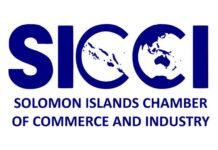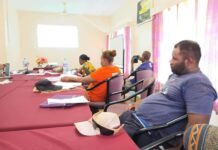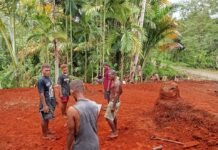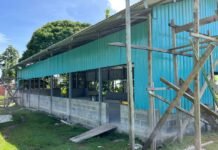
BY CHRIS ALEX
THE high cost of electricity is making it difficult for businesses in Solomon Islands to thrive, according to findings in the newly launched Country Economic Memorandum (CEM): Unlocking New Sources of Economic Growth, a study jointly conducted by the World Bank and the Ministry of Finance and Treasury (MoFT).
The findings, unveiled today at the Heritage Park Hotel, underline how the rising cost of electricity is hindering the private sector’s ability to thrive. Permanent Secretary of Finance and Treasury, McKinnie Dentana, acknowledged the ongoing economic struggles facing the country and the need for urgent reforms.
He stressed that high electricity prices are among the key obstacles hindering private sector growth, along with corruption, skills shortages, and governance issues.
“Our small domestic economy and remoteness from large export markets limit private sector activity and international trade,” Dentana said.
“The cost of doing business is further exacerbated by high electricity prices, making it even harder for local businesses to operate competitively.”
The CEM report underlines the struggle Solomon Islands faces in achieving economic growth. Dentana pointed out that per capita income has fallen behind peer countries since the civil unrest of the late 1990s and has yet to fully recover.
Additionally, the logging sector, historically a major contributor to the economy, has seen a significant decline in production, leaving other sectors struggling to gain momentum.
Despite these challenges, the report identifies key sectors with growth potential, including agriculture, fisheries, and tourism.
The government’s aim, as outlined in its National Development Strategy 2016-2035 (NDS), is to boost the country’s GDP growth to 7 percent by 2030. Achieving this target will require transformative reforms, including infrastructure development, institutional reforms, and legislative changes to create a more business-friendly environment.
A critical recommendation from the World Bank is the need for reforms in the energy sector. This includes reducing electricity prices by improving regulation and promoting private investment in renewable energy to stimulate the private sector.
As Solomon Islands grapples with its development challenges, Dentana emphasized the importance of collaboration between the government, development partners, and stakeholders to implement the report’s recommendations and unlock new sources of economic growth.
Meanwhile, the government remains committed to investing in infrastructure and creating a conducive environment for private sector activity, particularly in sectors with high potential for job creation and income generation.
“The way forward is to focus on transforming key sectors, while addressing the structural challenges that make it difficult to do business in the country, such as the high cost of electricity,” Dentana stated.


































